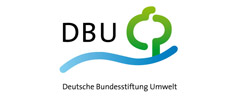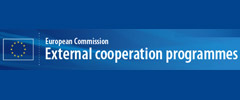NGO use EU funds to support terrorism?
WECF reacts to letter of German Liberal MEP in the Financial Times, in which she attacks NGOs receiving EU funds
22.03.2006 |Sascha Gabizon
Letter to the Financial Times
15 February 2006
With consternation we have read the letter in your newspaper, of Mrs Koch-Mehrin, German Member of the European Parliament for the Liberals, published on the 11th of February. In her letter she attacks NGOs as potential terrorism threats, as in-transparent and using public EU funds to ‘violently oppose’ the EU approach.
As a receiver of European funding, our network of NGOs „Women in Europe for a Common Future“, wants to stress the importance for democracy, of some public funding for citizen’s initiatives. What we believe is essential for a well-functioning democracy is that not only the rich and powerful should have a voice in policy-making, also those groups of society which are less often heard by politicians and less well represented in government.
Brussels resembles more and more Washington D.C, with currently an estimated 20,000 industry lobbyists active in the city. These industry lobbyists might not be as corrupt as depicted in George Clooney’s latest movie Syriana, but they do have a strong influence on the staff of the European Commission and the Members of the European Parliament. For example, only the lobby organisation of the chemical industry, CEFIC, is said to have an annual budget of some Euro 40 million. However, citizen’s organisations trying to represent the interest of the public have only a few people they can send to Brussels, and hardly any funding at all.
Take our example, WECF works with mothers and children who suffer negative health effects from environmental pollution. This can be toxic landfills near their houses, or polluted drinking water from agricultural activity. From this experience we formulate recommendations for policy, how the health of our children can be better protected, locally, but also at the level of the European Union. For the work at the ground WECF obtains among others support from private donors. But for bringing this experience to the EU policy level, it is almost impossible to find private donors. Therefore, we believe that each government should provide some funds to allow all sectors of society to take part in policy shaping, so as to provide some counterweight to the overwhelming influence of industry. Of course, each Euro we spent is justified and controlled by an external auditing company.
Another argument which Mrs Koch-Mehrin has brought forward, is that she noted that some of these NGOs receiving funds from the EU would be critical about EU policies, and that that should be unacceptable. By saying this she reminds us of politicians of the former Soviet Union. On the contrary, every democracy needs to continuously work on itself, good governance is the key element for economic growth and improved public wellbeing. And in order to improve governance, we need to allow, even foster, constructive criticism.
For example, our organisation has been critical about the latest development of the draft European Chemicals regulation. As we work with medical professionals specialised on the link between environmental pollution and health, we are continuously seeing the effects of the lack of chemicals management in the European Union. How much longer will our children fall ill from hazardous chemicals in their toys, furniture and clothes, because the industry lobby has been stalling and weakening the draft EU chemicals regulation? It is our duty as a European Women’s Environment network, to make our experiences known to politicians, and to provide constructive criticism of the current development on chemicals legislation.
Mrs Koch-Mehrin also mentions terrorism in relation to environmental NGOs. This is discrediting our work. Our organisation is working to implement the values of the EU as democracy, sustainable development, protection of the environment, poverty reduction and gender mainstreaming, and we believe that our type of work should not be excluded from public funding. We invite Mrs Koch-Mehrin to visit our projects and then reconsider what she said. Finally, we would like to ask her how many billions of EU funds, tax payers money, goes to subsidize industry?
Sascha Gabizon
International Director
Women in Europe For a Common Future (WECF)

































